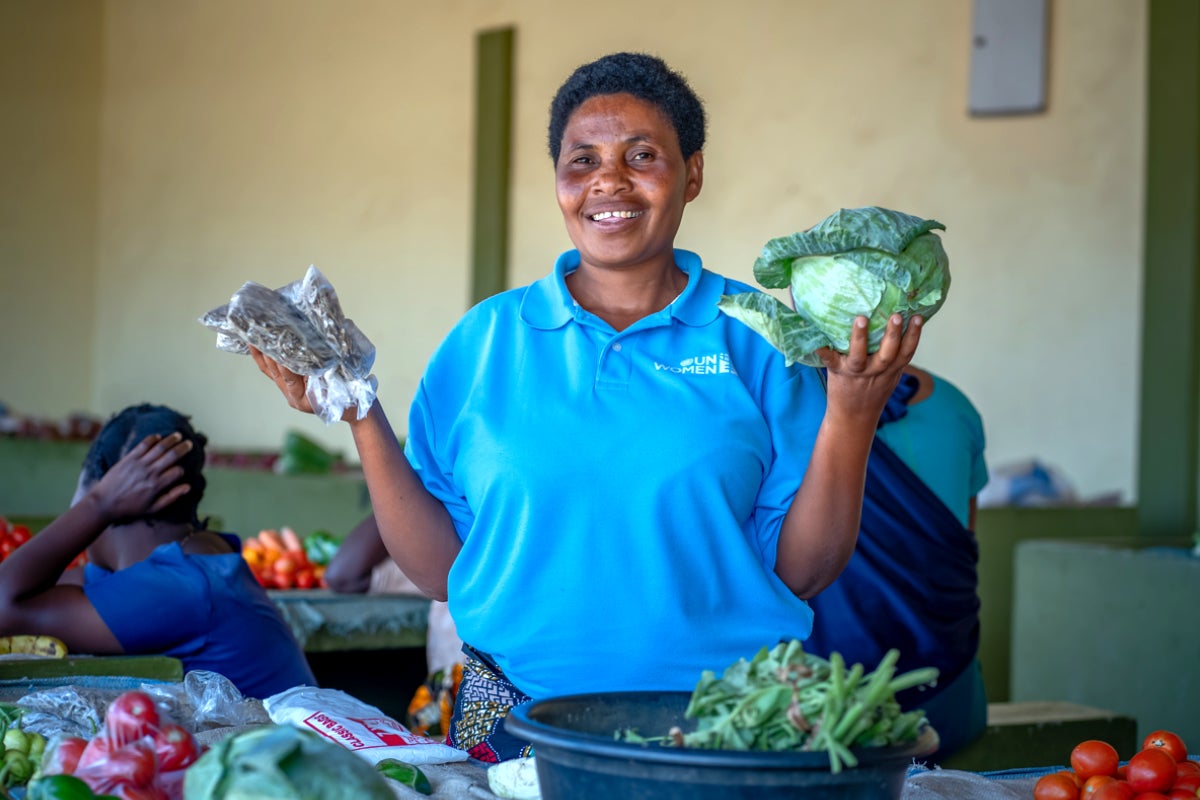
Women's Economic Empowerment

At UN Women Tanzania, we are committed to advancing women's economic empowerment by ensuring they have income security, decent work, and economic autonomy. We support policy reviews to promote women’s equal participation in the economy by enhancing their access to productive resources, employment, and entrepreneurship and supporting government efforts to improve women’s access to finance.
At the grassroots level, our initiatives focus on boosting productivity and enhancing the capabilities of women, particularly smallholder farmers. We work to increase their access to and control over productive resources, improve their agribusiness skills, and expand their market access. We also promote their involvement in managing natural resources and develop strategies for disaster risk reduction and climate change resilience within the Green and Blue Economies.
Through the African Girls Can Code programme, we actively support efforts to close the gender digital gap by strengthening the capacities of young women and girls with coding and digital literacy skills.
Our partnerships include government bodies, UN agencies, civil society, private sector organizations, international financial institutions, and networks dedicated to women’s entrepreneurship. Together, we strive to transform the care economy by advocating for the recognition and fair compensation of women's work and strengthening social protection systems.
Aligned with Tanzania’s Generation Equality commitments on economic justice and rights, we also integrate gender-responsive budgeting into governance processes through global normative frameworks, gender-responsive laws, policies, and institutions.
Key initiatives to advance women’s economic empowerment:
- Generation Equality
- Joint Programme on Accelerating Progress Towards the Economic Empowerment of Rural Women
- The African Girls Can Code Initiative
Video
Here's a typical day for many young women & girls, who balance school with care work.
— UN Women Tanzania (@unwomentanzania) May 6, 2024
To achieve #GenderEquality, it's essential to ensure a more equitable distribution of care & domestic responsibilities so women & girls can equally benefit from economic & social opportunities. pic.twitter.com/phooXvn5wX
Stories
Latest news
07/05/2025
02/05/2025


